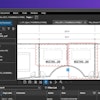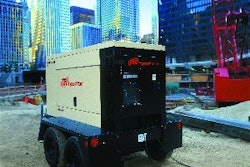
Awhile back, I introduced you to the six systems that control the fate of your construction business. Once again to refresh your memory, they were:
- Marketing
- Sales
- Staffing
- Planning
- Tracking
- Financial Control
- Grab a copy of your budget (you made one, right?). Allocate your sales across each month in accordance with your typical year.
- Analyze the behavior of your receivables. Determine which part of your money arrives immediately, and which parts take 30 days, 60 day, 90 days, and beyond. Spread each month's sales out accordingly to your collection history.
- Determine which overhead expenses are monthly and which hit periodically (withholding taxes for example). Allocate accordingly.
- Break your direct costs into payroll, material, and equipment. Payroll is paid weekly or every other week. Material bills are usually due 30 days after delivery. Identify your equipment lease payments and loan payments. Remember, depreciation doesn't use cash.
- Realistic durations based on past performance.
- Man-hour loaded tasks so that you can adjust staffing as needed.
- Allowance for pre-construction activities (submittals, equipment lead times, etc.)
- Separate paths for items that are not bound by sequence.
- Can you track down enough prospects?
- Can you market to the prospects cost effectively?
- Do clients value anything beyond low price?
- Does the work require expensive equipment?
- Can you find enough sufficiently skilled people to do the work?
- Is competition weak and are margins high?
- Do you have the cash reserves to survive thebmarket's pay cycle?
- Enter into new markets or niches,
- Improve field productivity,
- Reduce your current equipment costs, and / or,
- Equip more field crews due to sales growth.
Today, I am going to expand on the six planning systems you need to establish.
Planning means solving problems before they arise. Planning means making your decisions with your head (logic) instead of your heart (emotion). Planning eliminates unpleasant surprises. Planning brings about goal achievement. Planning keeps everyone on the same page and moving in the same direction.
You need planning systems for:
Determining Which Markets To Pursue
This process is known by many names with strategic planning, business planning, and strategic marketing being the most familiar. Regardless of what you call it, determining which market to pursue is your second most important planning process. Your market controls your destiny.
Before committing your financial future to a market, you must research the following issues.
The more you research market needs, market size, and entrenched competition the more likely you are to pick the right market - the one that will support the growth of your business. Once you've picked a market, you need to write down your plan for generating leads (marketing) and handling the work.
Creating Your Annual (Income) Budget
Your annual (income) budget is the financial representation of your business plan. Your annual budget is your most important planning process. I've never met a highly profitable contractor who didn't rely on annual budgets to guide his (or her) business.
This topic was addressed fully in a previous article entitled A Guide to Eliminating End-of-Year Surprises. Here's a quick summary.
The budgeting process forces you to think through your strategy and resource allocation. It forces you to account for every expense your company will suffer during the upcoming year. It helps you connect project gross profits to company net income. It gives you the ability to track your progress and make necessary adjustments on the fly.
Creating a Cash Flow Budget
Very few contractors prepare cash flow budgets. That's a tragedy. Cash flow budgets are the BEST WAY to stay on top of your business' financial health.
Trust me, you have enough experience with your clients'payment history and the timing of your expenses to create an amazingly accurate prediction of the way your cash will flow through your company this year.
Here's a simple procedure for planning your cash flow:
Base the material and labor expenses on their typical weighting to your expected total direct costs - which should be reflected on your income budget. Cash flow budgets give you the ability to compare your checking account balances against your performance year-to-date. They are an amazingly helpful tool.
Increasing Your Bonding Capacity
Whether you need a plan for building your bonding capacity depends greatly on the type of work you perform. If you are a general contractor, site utilities contractor, or paving contractor bonding is a critical piece of your business puzzle. If you happen to be a painter, service contractor, or residential contractor, bonding isn't all that important.
Bonding capacity is tied directly to the strength of your balance sheet. How liquid is your business? How much wealth has been left in your business? How much debt do you owe? These are the main three things that drive your bonding capacity.
If bonding is important to your business, you need to create a multi-year plan for growing it. The first step is to run a profitable business. Seriously, don't overlook that requirement. The second step is to leave money in your business.
If you don't run a profitable business, your balance sheet is going to grow ill quickly. Profit is the foundation upon which bonding capacity grows.
Many contractors like to pull their money out of their business to make it less accessible to vultures (litigation prone clients and employees). Pulling your money weakens your business, your balance sheet and it limits your bonding capacity. Make sure your door of opportunity remains open. Create a multi-year bonding plan.
Planning Project Completion
To contractors who work on long or complex projects, the benefit of project plans should be obvious. It's virtually impossible for crews to be efficient without one. It's virtually impossible to staff the job successfully without one. It's virtually impossible to finish a job on time without one. It's difficult to back up delay claims without one.
Here's a couple of characteristics that your project plans should have:
If you have a project whose on-time completion is extremely important and whose schedule is short and aggressive, you should consider breaking your project schedule into days, half days, or hours.
Scheduling Your Work Crews
Obviously, you need to keep your crews busy and efficient. The best way to do that is to eliminate downtime. Eliminate time lost waiting on material. Eliminate waiting on equipment to show up. Eliminate the general mulling around associated with crews who are not sure what they are supposed to be doing.
Look Ahead schedules are your tool for keeping your crews moving and productive. Look Ahead schedules are nothing more than a list that explains where the crew is supposed to be, what it is supposed to get done, the materials it will need, and the equipment it is to use.
Who, what, when, and where are the items to cover. Those items should be written down for each day and cover two weeks. Typically, a superintendent or foreman updates the Look Ahead. He then shares the plan with the crew to keep it tuned in to its upcoming work.
Determining When to Buy Equipment
You need a fleet management plan. You need to decide when you are going to rent, buy, and sell specific equipment. You need to build this plan into your annual budget.
Do you own every piece of equipment you need to be competitive in your chosen markets? Do you own any equipment that isn't needed to serve those markets?
Sell the equipment you don't need and buy the equipment you do. Evaluate the fit of your fleet to your business strategy annually. The real reason you need a plan for your equipment is that owning the wrong equipment is a costly mistake to make.
You need to keep a close eye on your current equipment operating costs. Sometimes, it is cheaper to replace your equipment than it is to continue repairing it. Other times, you should rent equipment as you need it. At times, it may make sense to rent your equipment out to other contractors.
Buy new equipment if you need to:
To make your investment in a piece of equipment pay off, you must be able to put it to work productively on profitable jobs. Look at your business opportunities and your niches. Then, look at your fleet. Take action.
A Final Word On Planning
All plans should have three characteristics:
1. Specific steps or actions.
2. Specific goals or outcomes resulting from the steps or actions.
3. Deadlines for the steps or actions.
Depending on the type of plan you are creating, two more characteristics should be present:
4. Identification of the person(s) responsible for performing the action.
5. Resources needed to perform the action.
Surely, you've heard the tired old saying "When you fail to plan, you plan to fail." Unfortunately, it's true.



















